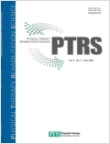Correlation between Respiratory Muscle Strength and Pulmonary Function with Respiratory Muscle Length Increase in Healthy Adults
- 물리치료재활과학회
- Physical Therapy Rehabilitation Science
- 제10권 제4호
-
2021.12398 - 405 (8 pages)
-
DOI : 10.14474/ptrs.2021.10.4.398
- 17

Objective: The interest of clinicians is increasing due to the newly established medical insurance for pulmonary rehabilitation. Improvement of respiratory muscle strength and pulmonary function is an important factor in pulmonary rehabilitation, and this study aims to investigate the correlation between changes in respiratory muscle contraction thickness that can affect respiratory muscle strength and pulmonary function. Design: Cross-sectional observational study. Methods: Thirty-one subjects (male=13, female=18) participated in this study. The respiratory muscle strength was measured by dividing it into inspiratory/forced expiratory muscles, and the pulmonary function was measured by forced vital capacity (FVC), forced expiratory volume in 1 second (FEV1), and FEV1/FVC. To evaluate the respiratory muscle length increase, in resting and concentric contraction thickness of diaphragm, external/internal oblique, transverse abdominis, and rectus abdominis were measured by using ultrasonography. Results: Inspiratory muscle strength showed a significant correlation with the length increase of the inspiratory muscle (r=0.368 ∼0.521, p<0.05), and forced expiratory muscle strength showed a significant correlation with length increase of forced expiratory muscle (r=0.356∼0.455, p<0.05). However, pulmonary function was not correlated with the length increase of the respiratory muscle. Conclusions: In this study, a correlation between respiratory muscle strength and respiratory muscle length increase was confirmed, but no correlation with the pulmonary function was found. It is considered that the respiratory muscle strength can be improved by increasing the respiratory muscle thickness through appropriate respiratory muscle training.
Introduction
Methods
Results
Discussion
Conclusion
Conflict of Interest
(0)
(0)